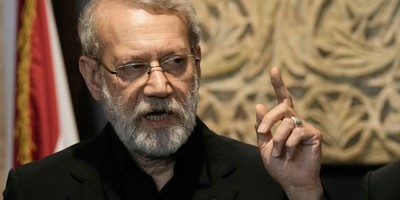Mercifully, the political conventions have ended.
The political press will keep buzzing over whether Clint Eastwood's unconventional speech helped or hurt Mitt Romney and whether the snafu over Israel and God in the Democratic platform will do any lasting damage to President Obama. Republican reporters will think former President Clinton talked too long, and Democrats will note that New Jersey Gov. Chris Christie talked more about himself than about Romney.
But they are missing the point. The campaign is about what's happening in America, not what the politicians are saying.
At the beginning of 2012, it was easy to note that if the economy got better, Obama would be reelected. If it got worse, he would lose. That general dynamic still applies, but the economic results aren't that clear cut.
At the beginning of the year, just 30 percent of working Americans thought they would be earning more in a year. By March, as glimmers of hope appeared in economic storylines, that number jumped to 43 percent: a great sign for the president. But then the trends began heading in the other direction. After 43 percent voiced optimism about higher pay in March, the numbers slipped to 42 percent in May, 41 percent in July and 40 percent today. And all of those figures are down from the president's early days in office.
A similar story can be seen by looking at the employment situation. In February, the Rasmussen Employment Index moved up to the highest level in years. Then this measure of labor market confidence began drifting in the opposite direction. Last month, the Employment Index hit a 10-month low. Just 21 percent of workers report that their firms are hiring, while 23 percent report layoffs. That's the second straight month where reported layoffs have topped hiring.
Recommended
Additionally, 29 percent of those who have jobs are worried about losing them. That's up four points from a month ago and the highest level of concern measured since last fall.
Another measure of job security shows the same growing concern. Just 62 percent of workers expect it will be their choice to leave their current job. That's down 12 points since July and 19 points since May. When an employee chooses to leave, it's generally good news for the worker. Perhaps they got a better offer or saved enough to retire. If someone makes the decision for you, the options aren't as good. Right now, the number of people who think it will be their choice is at the lowest level since the summer of 2009.
Just about all of the economic data tell a similar story. Things are better today than they were in 2011 but not as good as they were earlier in 2012. The trend early in the year was good for the president, but now it's heading the other way. The number of Americans who believe their finances are in good shape is down from four years ago but up from last summer.
In the midst of all of this, 48 percent now trust Romney more than the president on the economy. Forty-four percent (44 percent) trust the president more. The good news for Romney is that he has the advantage on the most important issue of the campaign. The good news for the president is that Romney's advantage has been shrinking in recent months.
In short, the reality the political pundits too often miss is that what happens in the economy matters more than what happens in the campaigns.

























Join the conversation as a VIP Member